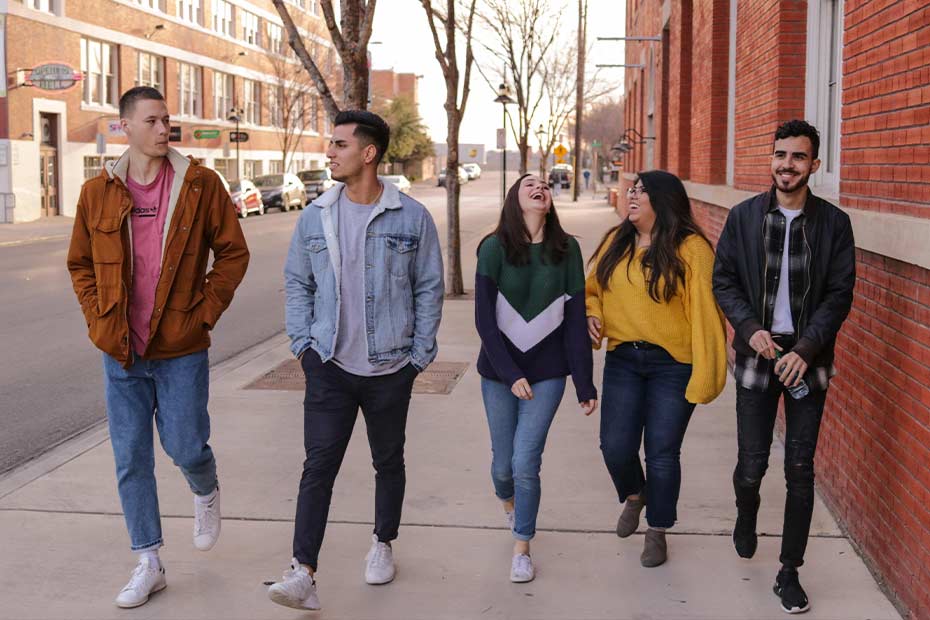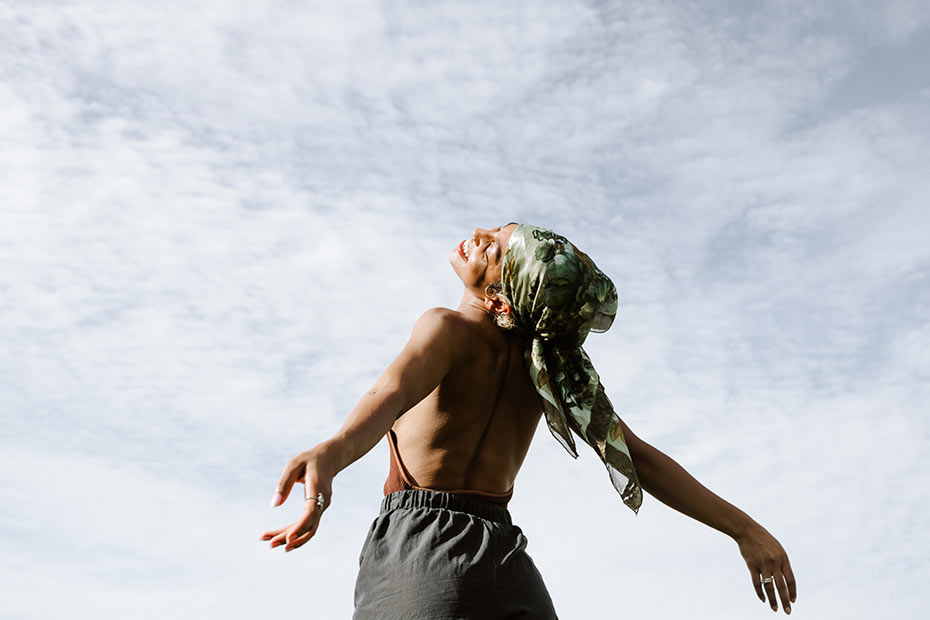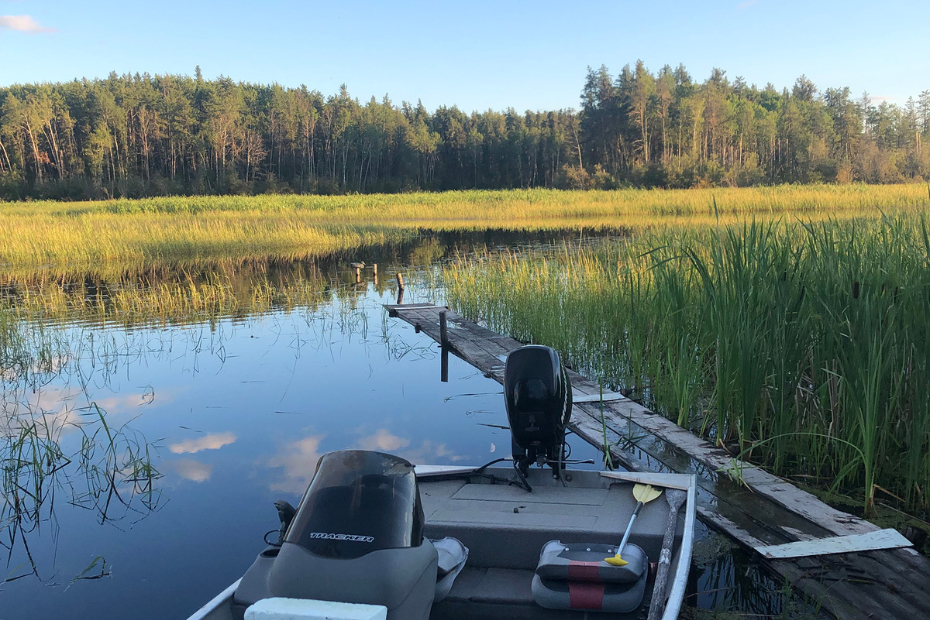Many people in Canada’s Black communities can face unique, and often culturally-specific, challenges when it comes to mental health support. For example, research from the Black Health Alliance shows that Black youth face twice the delay in accessing support and services compared to their peers.
These inequities in the health care system and in other aspects of social life can impact young people’s resilience in different ways. Samantha Simunyu, Marketing Manager at RBC, found her resilience tested when she was forced to abruptly leave her home of 17 years in the United States. After moving from Zimbabwe at the age of nine, Samantha had just a few days to pack up the only life that she knew as an adult.
“At that time, I couldn’t fathom any good coming from this experience and looking on the bright side was a futile option,” says Samantha.
Fortunately, she was able to resettle in Toronto, where she has been building a new life over the past three years. Samantha believes the move ultimately served a positive purpose in her life.
Today, Samantha is passionate about empowering Black women and youth. She has participated in speaking engagements, including the InnovateHER 2.0 virtual summit—a Toronto-based conference for young women of colour entrepreneurs. At RBC, Samantha is a committee member of Beacon, an initiative that accelerates the inclusion and representation of Black professionals in leadership positions, and she supports the CAO group Diversity Advisory Committee.
Unpacking the Mental Health Needs of Black Youth
Recently, Samantha spoke to Paul Bailey, Executive Director of the Black Health Alliance (BHA), about the work BHA does with youth to better understand their mental health needs.
“Our focus is to support people’s natural resilience but also give them the tools to become more resilient,” said Paul, “The BHA is currently advocating for culturally-responsive, community based, mental health services to help tackle some of the barriers that Black youth are facing, such as stigma, anti-Black racism and delays in getting support.”
In their conversation below, Samantha and Paul discuss how the health system can better respond to the needs of Black youth, particularly in terms of access to mental health support and services, and the opportunity for organizations like RBC.
“The work to support and empower Black youth is critical, and RBC is taking direct action to tackle the challenges they experience,” said Samantha.
“We have to use this opportunity to work with organizations like RBC to amplify the voices of young people,” added Paul.
Read more about their conversation.
Samantha: How has the pandemic shifted the ways in which the Black Health Alliance engages with youth?
Paul: Our focus is at the systems level and ensuring systems are accountable and responsive to communities and to the needs of young people. We moved online, which isn’t a wholly negative thing, but it changes the dynamics of what we do.
One example of something we’re doing is the Pathways to Care project. It’s a mental health systems innovation project designed to increase access and remove barriers to mental health services for Black children, youth and their families. Our engagement moved online, which has changed the dynamics of building and working with young people and communities.
Samantha: Another important topic is resilience, which I’ve always defined as bouncing back or maintaining a positive attitude throughout a bad experience. But I think that it can go deeper. How do you understand resiliency?
Paul: I think the term resiliency means many different things to many different people. I think about the inbuilt pieces some folks have to bounce back. But I also think about the ways that we support young people to be resilient by meeting their basic needs. People are suffering when they’re not in school, money and food might be tight, they may be living in a crowded housing situation.. So our focus and goal as an organization is to support people’s natural resilience, but also support with the tools and resources to become more resilient.
Samantha: Why do you think it’s important for Black youth, particularly Black women, to build resiliency?
Paul: Black women are the backbone of our communities in a lot of different ways. It’s always women who are making sure our community is supported .
When I think about how we prepare for resilience beyond the pandemic, I often think about the pressures on Black women to serve their communities. The resilience of people often relies on other people and other factors, and it’s important we support people, particularly Black women, in being resilient.
Samantha: I was born in Zimbabwe and I grew up seeing women and men expected to have a tough exterior, no matter what was going on in their lives. I think that has created stigma when it comes to mental health. What are your thoughts on the stigma surrounding mental health in the Black community?
Paul: I don’t know that mental health has become less stigmatized in our communities. I think a lot of folks are more comfortable creating spaces to talk openly about it and share their experiences. But I still don’t know that it’s safe for Black men or Black women to fully disclose that they’re facing mental health distress. What I do see is more folks creating the space to respond in small and creative ways, and that gives me hope.
Samantha: Among the Black youth you work with, what are some of the challenges they are facing and what are the drivers?
Paul: Black communities are diverse and I think there’s a huge cultural aspect to how we respond to mental health. The way people think about mental health really impacts the way they engage or don’t engage, and systems and services have to respond to that.
When it comes to the challenges, the Pathways to Care project has found Black youth in Ontario face twice the delay in getting access to evidence-based services as in comparison to white youth. Waiting that long to get to evidence-based services means that Black youth often get services through other pathways — like the emergency room, the police or the justice system. If you do get to a service provider, the providers there may not understand anti-Black racism as a determinant to mental health, and be able to respond to that, or Black youth may sometimes face more direct forms of anti-Black racism inside those services. I think it’s important we understand the diversity of young people and that we understand who is best positioned to support them. There’s a lot of work to do in raising awareness and in building the capacity of the sector to respond to Black youth.
Samantha: How do we increase awareness, especially for youth to know more about mental health and the services available to them?
Paul: The first step is to take time to talk to young people and people who are serving them to understand what their needs are. We can’t assume we understand those dynamics. The second is to work with service providers to help them understand who their community is and enable them to reach and serve them in ways that meet their needs. I also think we have to use this opportunity now to work with organizations like RBC and others that have a platform to amplify the voices of young people.
Samantha: Do you have any final thoughts?
Paul: It’s going to take time to build the system capacity to respond to the issues facing Black youth. But one of the things that we’re advocating for right now across Ontario is getting culturally-responsive services based in communities, to respond to young people’s needs. That’s a critical part of the solution. And I think folks who have the platforms to support, whether it’s through donations or partnerships, should really think about enabling communities to be responsive to young people.
This interview has been condensed for clarity.
As part of RBC Future Launch, RBC is committed to enhancing youth mental well-being, offering access to a wide variety of digital resources that can help cope through challenges, build skills in resilience and even help other youth who may be struggling. Please take some time and explore the link above.
More from the Breakdown Down Barriers: Youth Mental Well Being in Canada:
This article is intended as general information only and is not to be relied upon as constituting legal, financial or other professional advice. A professional advisor should be consulted regarding your specific situation. Information presented is believed to be factual and up-to-date but we do not guarantee its accuracy and it should not be regarded as a complete analysis of the subjects discussed. All expressions of opinion reflect the judgment of the authors as of the date of publication and are subject to change. No endorsement of any third parties or their advice, opinions, information, products or services is expressly given or implied by Royal Bank of Canada or any of its affiliates.


































